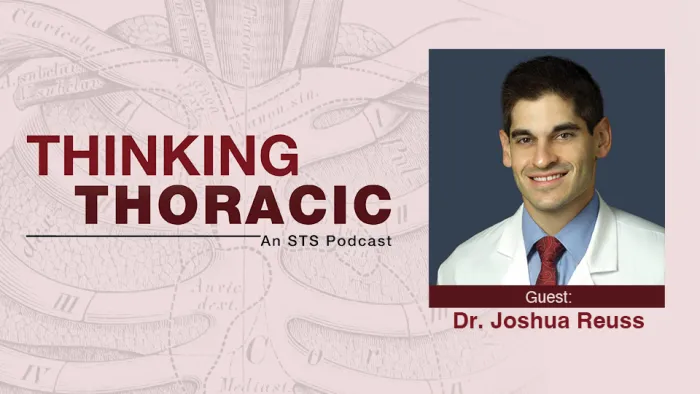The Society of Thoracic Surgeons hosted an early career webinar, How to Maximize Your First Six Months of Training, facilitated by Sandeep Bharadwaj, MD, Northwestern University, and featuring insights from faculty, fellows, and recent graduates, including Sara Pereira, MD, Indiana University School of Medicine; Irbaz Hameed, MD, Yale University School of Medicine; Allison Davila, MD, Lurie Children’s Hospital of Chicago; Kathleen Banfield, MD, University of Washington; and Rachel Schenkel, MD, University of Minnesota. The session focused on how residents and fellows can set themselves up for success during the critical early months of cardiothoracic surgery training.
Here are the five key takeaways:
1. Preparation and Attention to Detail Build Trust
Panelists emphasized that preparation begins with knowing the patient thoroughly through indications, imaging, labs, and prior operative notes. Because each attending has different preferences, keeping a running document of techniques and nuances is invaluable. Remembering even small details, such as how a surgeon places retraction stitches, signals meticulousness and builds early trust.
Tip: Take notes or create personalized preference cards after each case. Reviewing them before scrubbing in demonstrates initiative and reliability.
Panelists also talked about the importance of using medical journals and resources strategically. For example, the Annals of Thoracic Surgery was highlighted as the most commonly read journal, with additional helpful content sometimes found in cardiology-focused publications such as Circulation or JACC. Apps like the older CSAT versions can also be valuable if still available.
2. Maximize Rotations Beyond the Operating Room
Early in training, residents should take advantage of rotations in anesthesia, perfusion, and imaging. These experiences provide foundational knowledge about cardiopulmonary bypass, echocardiography, and perioperative care that will make OR time more meaningful later.
Advice from faculty: “You’ll have plenty of opportunities for cardiac and thoracic cases. Early on, prioritize learning the physiology, imaging, and team dynamics that support those operations.”
3. Presence Matters More Than Case Volume
Technical milestones in the first six months vary widely and depend largely on faculty trust. Rather than focusing on how many sternotomies or cannulations you log, concentrate on showing up prepared and present. Double-scrubbing, even when you’re not the primary, provides an opportunity to observe technique, communication, and decision-making without the pressure of leading the case.
Key reminder: “It isn’t always about doing, it’s about being present and understanding the flow of the operation.”
4. Clarify Communications, Manage Expectations, and Avoid Comparisons
Many trainees struggle with self-doubt when their technical skills don’t advance as quickly as their peers’ skills. Faculty urged residents not to compare themselves to others or to what’s portrayed on social media. Everyone progresses at a different pace, and impostor syndrome is common. Define communications protocols. Different institutions use pagers, texts, WhatsApp, Epic chat, or Teams messages. Trainees should learn the preferred hierarchy of communication (e.g., page - call vs. text - call) and align with their team’s expectations. Junior residents are also encouraged to err on the side of overcommunication with seniors and attendings. If you’re unsure whether to call, the safe rule is that you should.
Practical step: Check in regularly with program directors or attendings. Structured feedback often reveals that you’re performing at or above expectations, even if you feel behind.
5. Develop a Study System That Works for You
Learning outside the OR is just as important as time inside it. Some panelists recommended structured reading plans, such as committing to one textbook in the first year, while others suggested journaling surgical techniques or building photo libraries of operative steps. The method matters less than consistency.
Advice from the panel: Identify a study routine early and stick to it, whether through textbooks, operative atlases, or case-based reviews. Over time, selective reading and case preparation will sharpen your clinical judgment.
The first six months of cardiothoracic surgery training are about more than technical skills. They are about building trust, cultivating presence, and laying the foundation for a lifelong career. By preparing thoroughly, engaging fully in every rotation, and giving themselves grace, residents can maximize this critical period.
